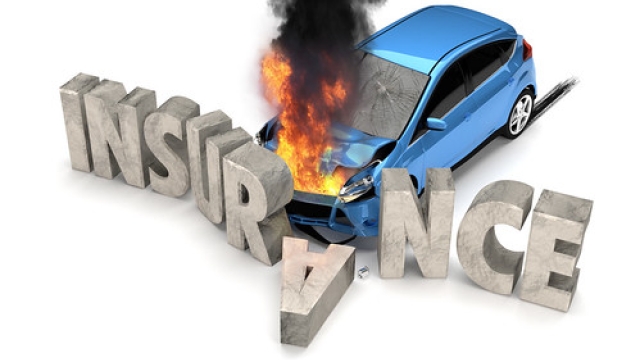Car insurance is a vital aspect of owning a car. It provides protection and financial security in case of accidents, theft, or damage. Whether you’re a seasoned driver or a new car owner, understanding car insurance is essential for making informed decisions. In this comprehensive guide, we will dive into the world of car insurance, exploring what it is, why you need it, and the various types of coverage available. Get ready to unravel the mysteries of car insurance and equip yourself with the knowledge you need to navigate this complex industry with confidence.
Types of Car Insurance Coverage
Car insurance coverage offers protection in the event of accidents or damages involving cars. There are several types of car insurance coverage available to suit different needs and circumstances. Understanding the options available can help you make informed decisions when choosing the right coverage for your car insurance policy.
Liability Coverage
Liability coverage is a mandatory type of car insurance that provides financial protection for damages or injuries caused to others in an accident for which you are responsible. It typically includes two components: bodily injury liability coverage and property damage liability coverage. Bodily injury liability covers medical expenses, lost wages, and legal fees resulting from injuries to others, while property damage liability covers the cost of repairs to another person’s property.
Collision Coverage
Collision coverage protects your own vehicle in the event of an accident, regardless of who is at fault. It covers the cost of repairs or replacement if your car is damaged or totaled in a collision with another vehicle or object. Collision coverage is especially valuable if you have a newer or more expensive car, as the costs of repairs or replacement can be substantial.

Comprehensive Coverage
Comprehensive coverage provides protection for damages to your car that are not caused by a collision. This includes damage from events such as theft, vandalism, natural disasters, falling objects, and animal collisions. Comprehensive coverage ensures that you can repair or replace your vehicle if it is stolen or damaged by an unforeseen event, reducing your financial burden.
These are just a few of the types of car insurance coverage available. It’s important to review your options carefully and consider factors such as your driving habits, the value of your car, and your budget before selecting the right coverage for your needs. By understanding the different types of car insurance coverage, you can ensure that you have the necessary protection in place for any unforeseen circumstances.
Factors Affecting Car Insurance Premiums
The cost of car insurance can vary widely depending on several factors. Insurers consider these factors when determining the premium you’ll pay for your car insurance. Understanding these factors is crucial in obtaining the best coverage at a price that suits your budget.
Driving Record: One of the significant factors that influence car insurance premiums is your driving record. Insurance companies typically reward safe drivers with lower premiums, while those with a history of accidents or traffic violations may be charged higher rates. Maintaining a clean driving record is essential for keeping your insurance costs down.
Age and Experience: Young and inexperienced drivers are often charged higher premiums due to their higher risk of accidents. Insurance companies consider statistics that show younger drivers are more likely to be involved in accidents compared to experienced ones. Gradually, as you gain more driving experience and have a longer history of safe driving, your insurance premiums may decrease.
Type of Vehicle: The type of vehicle you drive also affects your car insurance premium. Insurers consider factors such as the make, model, age, and value of your vehicle. Expensive or high-performance cars generally have higher insurance premiums due to the increased cost of repairs or replacement. On the other hand, older and more modest vehicles may have lower premiums.
Remember that each insurance provider may prioritize these factors differently, and additional factors might also come into play. Comparing quotes from different insurers can help you find the best coverage options at competitive premium rates.
Tips for Finding the Best Car Insurance
Evaluate your coverage needs: Before you start searching for car insurance, it’s important to consider your individual requirements. Assess your driving habits, the value of your vehicle, and your budget. By understanding what you need from your car insurance, you can make a more informed decision.
Shop around for quotes: Don’t settle for the first insurance company you come across. Take the time to gather quotes from multiple providers. Compare their coverage options, deductibles, and premiums. This will help you find the best car insurance policy that offers the right balance between price and protection.
Read reviews and ratings: To ensure you choose a reliable insurance company, it’s wise to read reviews and check ratings. Look for feedback from other customers regarding their experiences with the insurer. This can give you insight into their customer service, claims handling, and overall satisfaction.
Understand the policy terms and conditions: Before committing to any car insurance policy, carefully read and understand the terms and conditions. Pay attention to the coverage limits, exclusions, and any additional benefits or riders offered. Being aware of these details will help you make an informed decision and avoid any surprises in the event of a claim.
Consider bundling policies: Many insurance companies offer discounts when you bundle multiple policies, such as car and home insurance. If you have other insurance needs, it may be beneficial to consolidate them with the same provider to take advantage of potential cost savings.
Seek recommendations: Reach out to friends, family, and colleagues who have had positive experiences with their car insurance providers. Recommendations from trusted individuals can be valuable in guiding you towards reputable insurers.
One Sure
By considering these tips, you can navigate the car insurance market more effectively and find the best policy to suit your needs. Remember, it’s essential to prioritize both coverage and affordability when making your decision.
